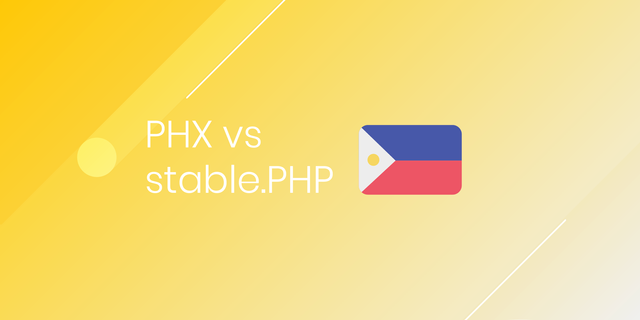
Bitspark has long had an interest in leveraging cryptocurrencies to optimise the way money works in every single sense of the word. In fact, Bitspark was the first in 2014 to use Bitcoin for a cross-border cash-in cash-out transaction from Hong Kong to The Philippines.
Since then, the industry has developed substantially. Bitspark has dedicated itself to the creation of a growing portfolio of stablecoins with stable.PHP (the Philippine Peso stablecoin) as the most recent addition. In The Philippines, there is significant interest in cryptocurrency and stablecoins.
Only recently, it came to light that UnionBank - one of the top banks in The Philippines - has been working on creating its own stablecoin pegged to the Philippine Peso. On July 23rd, it announced that it had successfully conducted its first account-to-account cross-border crypto remittance.
It’s a significant development and an indication of the state of crypto in The Philippines - an opportunity, perhaps, to boost the use of crypto and stablecoin across the archipelago.
The state of crypto in The Philippines
It was recently reported that virtual currency transactions in The Philippines doubled from $189.18 million in 2017 to $390.37 million last year. This includes conversions from Philippine Peso (PHP) and other fiat currencies to crypto and vice versa, as well as inbound remittances in the form of crypto.
Despite occasional warnings from the Central Bank of The Philippines (BSP), it is important to understand that crypto is not necessarily seen as something negative but rather something that regulators need to approach cautiously and - due to the novelty of it - creatively.
While cryptocurrency is not recognised as legal tender, the merits of cryptocurrencies such as Bitcoin and stablecoins are recognised as a conduit to provide certain financial services, such as remittances and payment transactions.
To date, 11 crypto exchanges have formally registered with the BSP, and an additional 37 others have obtained licenses from the Cagayan Economic Zone Authority (CEZA), a government-owned corporation that supervises developments in the Cagayan Special Economic Zone and Freeport located in the northeastern tip of The Philippines. This shows that The Philippines is gradually opening up to crypto and conscious of its merits.
UnionBank has been piloting its own bank-backed stablecoin for quite some time now, and on June 20th, it was announced that the BSP has approved UnionBank as the first domestic commercial bank to issue its own Peso stablecoin, called PHX.
So what’s the difference between UnionBank’s PHX and Bitspark’s stable.PHP?
PHX vs stable.PHP
PHX
One of the main motivations that drove UnionBank to produce its own stablecoin is to connect rural banks across the country and across borders via blockchain.
Currently, around 70% of 100 million citizens - mostly in rural communities - do not have access to banking services, a major problem since up to 10% of the country’s GDP is derived from international remittances sent from overseas workers to families across the country. PHX is meant to change that by making it easier for the unbanked to access and transact funds.
PHX is not the same as e-money. As it is based on blockchain technology, payments made in PHX come with benefits such as transparency and immutability, which is efficient in preventing fraud and protecting against identity theft.
Although it is based on decentralised ledger technology, PHX is a trusted stablecoin, meaning its collateral is held by a central party.
The 1 to 1 ratio (1 PHX = 1 PHP) is maintained by way of the UnionBank holding Philippine Peso in reserves. The PHX stablecoin then essentially functions as an IOU which can be redeemed at any time.
Stable.PHP
Stable.PHP is likewise a stablecoin pegged to the Philippine Peso. The coin is backed by BitUSD which is itself collaterised by BitShares (BTS). All of this is locked into a smart contract which guarantees redemption in a fully transparent, publicly auditable manner.
As it is entirely set up on the blockchain, stable.PHP is in no way dependent on banks or other centralised third parties, and is therefore a trustless stablecoin.
The difference between these PHP stablecoins
Both PHP stablecoins are a way of making crypto accessible to more people in The Philippines. With a phone and internet connection, everyone could get PHP stablecoins to use for sending and receiving money, as well as pay bills or simply hold their cash in digital form.
One big difference between UnionBank and Bitspark’s stablecoin is that stable.PHP can be easily redeemed for PHP cash using the Bitspark mobile app. This can be done through any individual or shop affiliated with Bitspark who has signed up to serve as a Cash Point.
Another major difference is that stable.PHP is embedded in a comprehensive ecosystem that also contains other stablecoins such as bitUSD, bitEUR, bitJPY, sparkdex.HKD, and cryptocurrencies like Bitcoin and Ethereum.
This makes it easy for holders of stable.PHP to trade into other local currency stablecoins as a way to spread risk across currencies or conduct cross border money transfers, or to gain access to a broader range of cryptocurrencies to diversify their crypto portfolio.
In short, PHX is a trusted stablecoin that helps to connect the domestic banking system across the Philippines. Whereas stable.PHP is trustless stablecoin that people can use as digital cash for a variety of reasons, with a cash in and cash out network accessible through a mobile app.